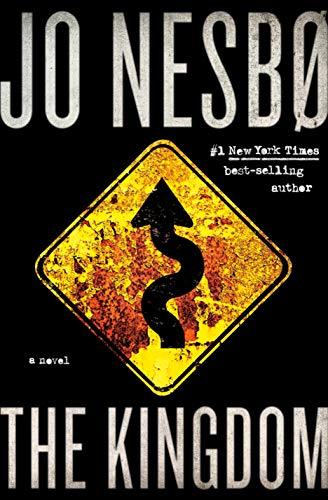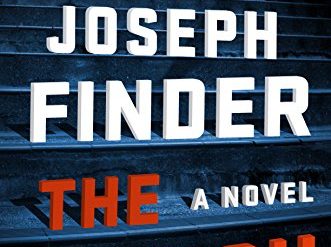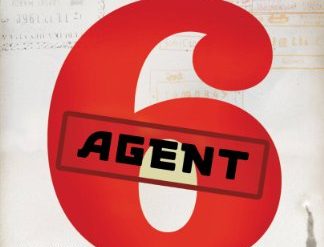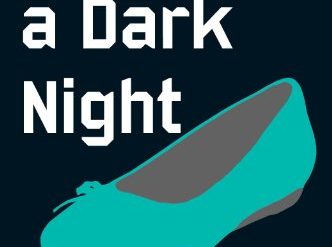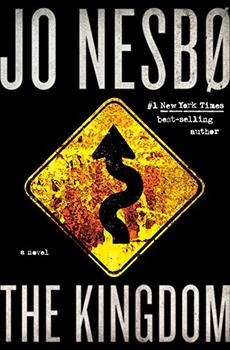
There’s something wrong with the Opgard brothers. They’re both hard-working, clever, and good-looking to boot. The sheriff knows something’s amiss, but he can’t prove it. Roy’s the village’s car mechanic, and he runs the local service station well enough to keep the corporate owners happy. And Carl, back after sixteen years in North America, returns with a gorgeous Barbados-born wife and a reputation as something of a wizard as an entrepreneur. But Carl’s ambitious scheme to build a spa hotel on their farm raises the stakes in the village to the limit. Then Roy’s carefully constructed defense against jealousy comes boiling to the surface . . . and the bodies start to drop. But that’s only the beginning of Jo Nesbø’s new standalone thriller, The Kingdom.
The Kingdom by Jo Nesbø (2020) 540 pages @@@@ (4 out of 5)

Image credit: Touropia
Jo Nesbø is best known in America as the author of the twelve Harry Hole detective stories, but he has also written fourteen other novels to date. The Kingdom is the fifth of his standalone thrillers. It reads like a more serious literary effort than the detective stories. For instance, here’s an excerpt from a soliloquy—there’s no other word for it—that Nesbø attributes to Shannon Alleyne, Carl’s wife, in an argument about World War II with one of the villagers:
“Our loyalty to our flock is underestimated. We shape morality so that it suits our purposes when we feel our group is under threat. Family vendettas and genocides throughout history are not the work of monsters but of human beings like us who believed they were acting in a way that was morally correct. Our loyalty is primarily to our own and secondarily to the changing morality that at any given time serves the needs of our group.”
You won’t catch Harry Hole talking like that! And that dialogue isn’t an isolated example. The Norwegian villagers also come across as an astoundingly articulate lot, capable of expressing their most profound thoughts at the drop of a hat—and seemingly compelled to do so.
Digging deeply into human psychology
Now, don’t get me wrong. The Harry Hole books are superb, for the most part. The dialogue, while often intelligent, mimics normal speech, at least as closely as the written word (and deft translation) can manage to do so without lacing every sentence with grunts and hesitations. And the plots, while invariably hard to believe, almost always work well, smoothly moving the reader along from one shock to the next. But like so much genre fiction, they’re essentially formulaic.
Harry Hole’s behavior might disappoint, but it’s always predictable. The Opgard brothers enter the scene as an entirely unknown quantity. The Kingdom, as a standalone effort, allows Nesbø to explore the brothers’ psychological depths and those of his other characters. He’s free of the restraints imposed by the Harry Hole formula—usually involving a serial killer—or what might have been revealed in previous books in the series.
The Kingdom is, of course, a worthy piece of work, and other reviewers have been kind. For example, the Washington Post (November 9, 2020) approvingly termed the book “a dense, suspenseful bundle of Norwegian noir.” And Kirkus (November 10, 2020), equally pleased with the book, referred to “the illusions of a family and its close-knit town constructed and demolished on a truly epic scale.” However, The Kingdom leaves me uneasy.
Does Jo Nesbø like these characters?
For all Harry Hole’s faults, and they are many, Nesbø seems to like the man. How else could he manage to write a dozen novels about him? But he doesn’t seem to like the Opgard brothers. Admittedly, they’re sociopaths, so they’re especially hard to like. But Nesbø doesn’t look all that kindly on most of the other characters, either. For instance, here’s Roy musing about the village woman who had seduced his brother when drunk and broken up his engagement: “I’m not saying Grete Smitt was actually evil, I’m sure there’s some psychiatric diagnosis or other that gives a more flattering definition.” And others in this standalone thriller don’t come off much better. Nesbø is too busy flaunting their deficiencies. Because this is, above all, a story about human frailty and capacity for violence. And I sometimes wonder whether there’s something wrong that drives me to keep reading this stuff.
About the author

Jo Nesbø (1960-) is surely one of Norway’s richest assets. His novels have reportedly sold more than three million copies in Norway alone—and the country’s population is hardly more than five million. Around the world, over thirty million additional copies have been sold in more than forty languages. He is surely the planet’s most famous Norwegian. But Nesbø isn’t just a writer. Fellow Norwegians know him as a rock star, a star soccer player, a journalist, and an economist. You’ll get a sense of Nesbø as a person from this fascinating interview in Crimereads (November 19, 2020).
For additional reading
Check out The outstanding Harry Hole thrillers from Jo Nesbø and The best Nordic noir series from Sweden, Norway, Denmark, and Iceland.
You might also enjoy my posts:
- Top 10 mystery and thriller series;
- 20 excellent standalone mysteries and thrillers;
- 5 top novels about private detectives; and
- Two dozen outstanding detective series from around the world.
For an abundance of great mystery stories, go to Top 20 suspenseful detective novels (plus 200 more). And if you’re looking for exciting historical novels, check out Top 10 historical mysteries and thrillers reviewed here (plus 100 others).
And you can always find my most popular reviews, and the most recent ones, plus a guide to this whole site, on the Home Page.

